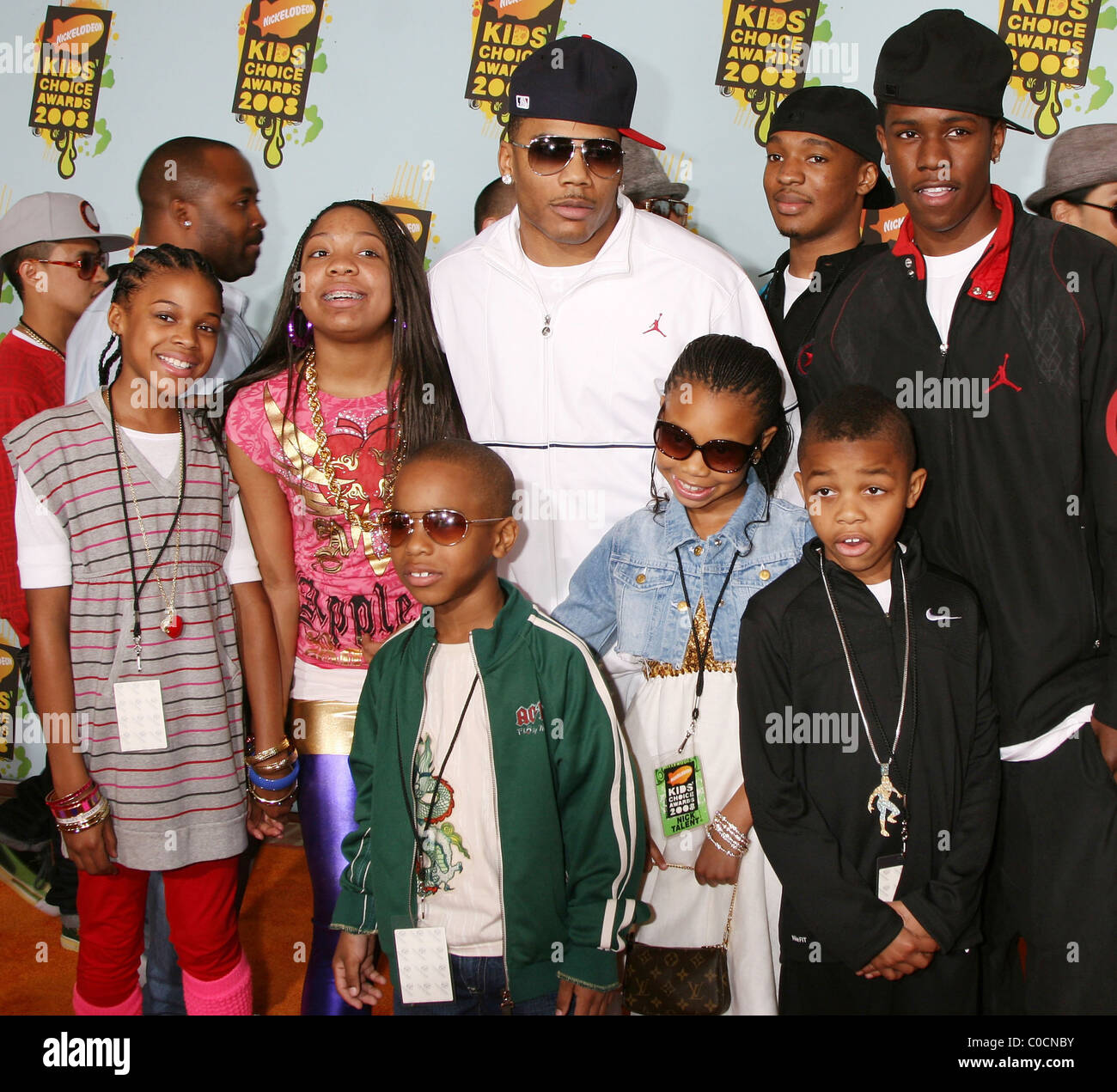Many folks often wonder about the personal lives of public figures, and it's quite natural to feel a bit curious about someone like Nelly. People might be asking all sorts of things, like what he's been up to lately, or perhaps about his family situation. Finding out details about a person's life, especially when they are well-known, can sometimes feel like a little bit of a puzzle. We often turn to different places to get these sorts of answers, whether it's through conversations or by looking things up.
So, when a question like "Does Nelly have any kids?" comes up, it's not just about the answer itself, but also about how we even form such a question in the first place. You know, how do we put words together to ask about someone's family? This kind of inquiry, while simple on the surface, actually relies on some fundamental parts of how we speak and write. It's almost like a basic building block for getting information.
As a matter of fact, the way we phrase questions, particularly those asking about whether someone possesses something or has a certain status, often involves a couple of very common words: "do" and "does." These words are pretty important for making sense when we're trying to gather facts or just satisfy a bit of friendly curiosity. We'll take a look at how these words help us ask about things, even about the family life of a musical artist.
Table of Contents
- The Question of Nelly's Family Life
- Does Nelly Have Any Kids - A Common Query?
- What's the Deal with "Do" and "Does"?
- How Do We Use "Do"?
- When Does "Does" Come into Play?
- Forming Questions About People
- The Helper Role of "Do" and "Does"
- Finding Answers - Where Can We Look?
The Question of Nelly's Family Life
People are often interested in the personal background of individuals who are widely recognized. When someone becomes a public figure, like an entertainer, it's quite typical for others to want to know more about their life beyond their work. This can include details about their upbringing, their relationships, and, yes, whether they have a family of their own, particularly children. So, you know, asking "Does Nelly have any kids?" fits right into this kind of general interest.
When we think about getting information on a person's life, we usually look for what people call biographical data. This would be facts about their birth, their career path, and, of course, their family situation. To put it simply, we're trying to build a picture of who they are. However, this particular discussion isn't about giving you a full life story for Nelly. Instead, it's about looking at the actual question itself and how we use certain words to ask it.
We often rely on various sources to piece together information about someone's personal journey. Sometimes, this might involve looking at what's been shared publicly, or perhaps even checking out popular places where people buy things, like online stores, because those places sometimes also carry books or media that might contain such details. But, for our purposes here, the information we're drawing from focuses on the building blocks of language itself, rather than providing specific personal facts about Nelly.
- Andrea Love Island S6
- Drake The Singer
- Donna Veki%C4%87 Kokkinakis
- Benjamin Ingrosso Wife
- Patrick Mahomes Family Dynamics
Does Nelly Have Any Kids - A Common Query?
It's pretty common for people to ask about the family lives of celebrities. Questions about whether someone has children, or a partner, or even what their hobbies are, tend to come up quite a bit. The question "Does Nelly have any kids?" is a good example of this kind of general curiosity. It's a straightforward way to inquire about a very personal aspect of someone's existence.
In English, when we want to find out if a single person or thing possesses something, or is in a certain state, we often begin our question with the word "does." This is a key part of how we structure these kinds of inquiries. For instance, if you wanted to know about a pet, you might ask, "Does your cat like tuna?" The pattern is quite similar when asking about a person's family.
This simple question, you see, highlights a very important rule in our language. It shows how we use specific forms of verbs to match the person or thing we are talking about. Without this proper matching, our questions can sound a bit off, or even be hard to understand. So, figuring out when to use "does" is a pretty big deal for getting your point across clearly.
What's the Deal with "Do" and "Does"?
When we talk about things happening right now, or things that happen regularly, we often use different forms of the verb "do." It's actually a very versatile word. Both "do" and "does" are ways we express this verb in the present time. The choice between them, you know, really comes down to who or what you're talking about in your sentence.
Apparently, picking the right one depends on the person or thing doing the action. This is what we call subject-verb agreement, and it's a pretty basic concept in English. If you get this part right, your sentences will flow much better and be easier for others to grasp. It's like having the right key for a lock; it just fits.
Honestly, "do" and "does" sometimes get mixed up by people learning English, or even by native speakers who aren't paying close attention. But they truly have their own specific jobs and ways of being used. Understanding these differences is, in some respects, a really important piece for speaking and writing English in a good way. It helps avoid misunderstandings and makes your communication much more precise.
How Do We Use "Do"?
Typically, we use "do" with certain words that stand in for people or things. These are often referred to as pronouns. So, for example, when you're talking about yourself, you say "I do." If you're addressing someone directly, it's "you do." When referring to a group that includes you, it's "we do," and for a group that doesn't include you, it's "they do." This is pretty much the standard way it works.
For instance, if you were expressing a strong feeling about something, you might say, "I do enjoy a good book." Or, if you're talking about a group of people and their habits, you could say, "They do go to the park every Sunday." These phrases show "do" working as a way to emphasize or simply state an action or a preference for multiple people or for yourself.
"Do" is also what we use when we form questions for these same subjects. If you want to ask someone about their preferences, you might say, "Do you like coffee?" Or, to inquire about a group's plans, you'd ask, "Do they plan to visit?" It's a versatile little word that helps us build a lot of common sentences, particularly when we're trying to get information or express a negative idea.
When Does "Does" Come into Play?
When you're talking about a single person who isn't you or the person you're speaking to, or a single thing, that's when "does" makes its appearance. This means that when you're referring to "he," "she," or "it," you switch from "do" to "does." It's a simple change, but a pretty important one for getting your grammar right. This applies whether you're stating a fact or asking a question.
For example, if you're talking about a male friend, you'd say, "He does play the guitar really
Related Resources:



Detail Author:
- Name : Mavis Crist
- Username : madge94
- Email : tristin.abbott@grady.com
- Birthdate : 1978-04-28
- Address : 390 Brown Squares Port Jimmie, IA 09309
- Phone : +1-678-466-7188
- Company : Osinski Ltd
- Job : Physicist
- Bio : Et ullam nihil unde aut assumenda. Autem voluptatem quaerat ex similique. Rerum dolor repellendus unde repellendus.
Socials
tiktok:
- url : https://tiktok.com/@greenholta
- username : greenholta
- bio : Voluptatem eveniet magnam officia.
- followers : 4975
- following : 895
linkedin:
- url : https://linkedin.com/in/anne.greenholt
- username : anne.greenholt
- bio : Consectetur ea atque dolores.
- followers : 507
- following : 442
facebook:
- url : https://facebook.com/greenholta
- username : greenholta
- bio : Occaecati aut recusandae voluptates exercitationem animi eos.
- followers : 5716
- following : 1417